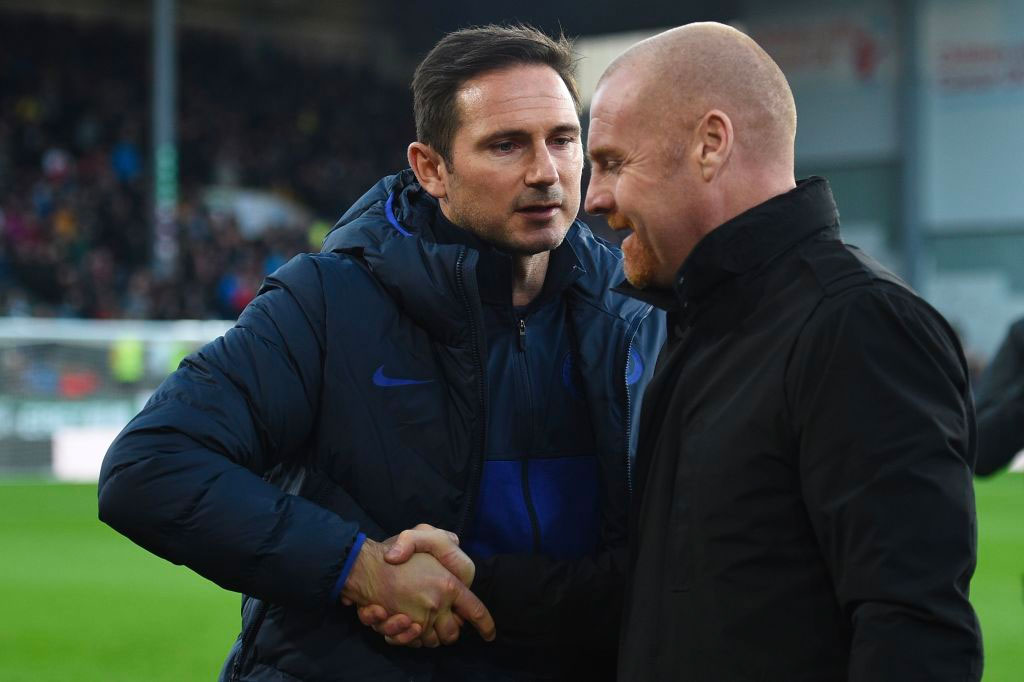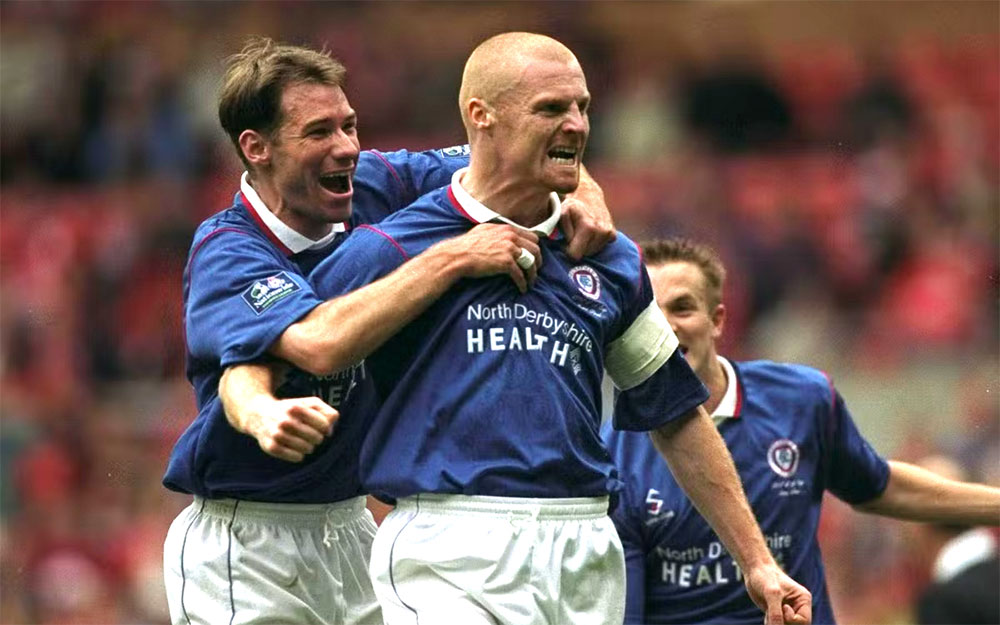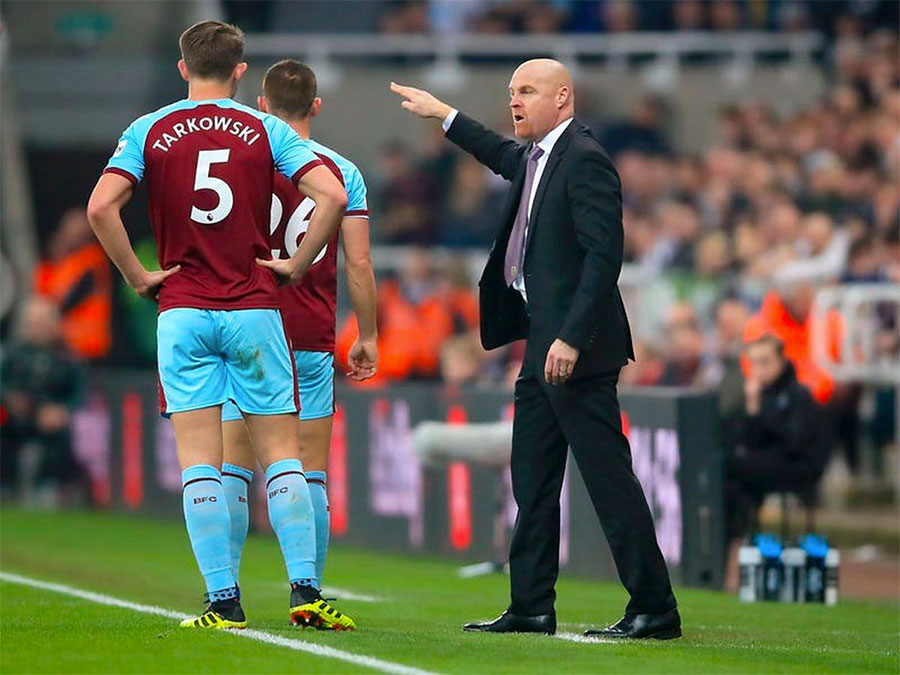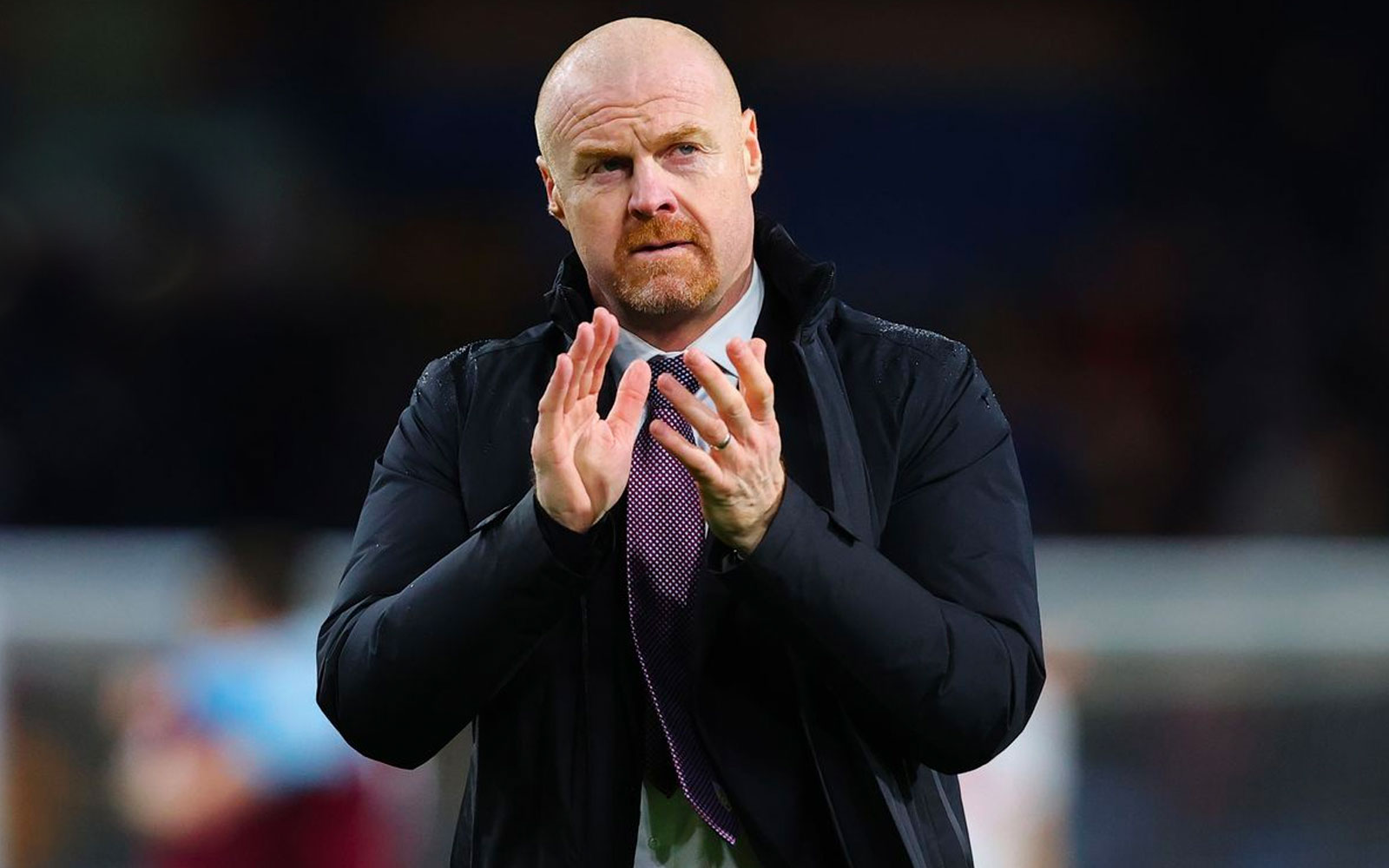Less stardust, more salt-of-the-earth – Can Dyche's grounded approach save Everton?
Sean Dyche may be far removed from Farhad Moshiri's 'Hollywood manager' ideals but his no-nonsense, 'needs-must' style of football could be just what Everton need after the more idealistic Frank Lampard tenure. More importantly, he has pulled off this kind of 'Houdini act' before
Seven years; seven full-time managerial hires. It’s fair to say that Farhad’s dream — all Hollywood managers, marquee players and three-year runways to the Champions League — has not gone at all according to plan. And, yes, there was one… at least at the outset when Ronald Koeman and Steve Walsh arrived to herald a new era at Goodison Park.
The dysfunction and internal push-and-pull of competing voices and visions among the Everton hierarchy is a wearying subject for another day but as the Moshiri era approaches that seven-year marker, there’s more B-list mediocrity about the club than the star-studded vehicle the Monaco-based billionaire had envisioned.
With the likes of big-money signings Gylfi Sigurdsson and Richarlison gone along with ex-Galactico James Rodriguez, that goes for the playing squad but it will also be reflected in the dugout next weekend where Sean Dyche will take charge of his first match as Everton manager.
That is no disrespect to Dyche — he had an unspectacular playing career as a centre-half that never ascended above the second tier of English football and has managed two equally unfashionable clubs in Watford and Burnley — and the 51-year-old with the shaven head and gruff voice would probably be the first to admit that the only vision of Hollywood he might conjure up is that of the henchman to the movie villain even if he knows there a lot more to him than what appearances convey.
That he has ended up at Everton owes as much to his availability, his reputation for a particular brand of safety-first football and the mess that the Blues have become under Moshiri’s stewardship than anything else. Because, if the Board’s much-vaunted, yet still nebulous strategic review had recommended a more coherent approach whereby player recruitment and the selection of managers would be allied to an overall vision, it wasn’t reflected in two wildly different candidates in Dyche and Marcelo Bielsa.
There is little common ground in footballing terms between the maverick Argentinian known as El Loco and the Kettering-born coach who once self-deprecatingly dubbed himself “the Boring One” in response to being labelled "the Ginger Mourinho” in the English press, except perhaps their tendency towards physical fitness and the hard yards on the training pitch.
But then the Blues’ hierarchy had painted themselves into a corner, having given Frank Lampard so much time to show he could arrest an alarming run of results that they found themselves in the bottom three of the Premier League, on the wrong side of the halfway point of the season, and, once again, up against the transfer deadline by the time they finally bowed to the inevitable and sacked him.
Not only was there no time to conduct an exhaustive interview process involving the half-dozen or so viable candidates currently out of work — some of them arguably much better-suited to a long-term rebuilding project than either the 67-year-old Bielsa and Dyche, who has had only two jobs at relatively small English clubs — but the very real threat of relegation and off-the-field chaos made Everton a deeply unattractive proposition.

While Bielsa would have added an air of excitement and unpredictability to a club that’s been an ongoing circus for too long now, there was an element of handling nitro-glycerine about the idea of bringing him on board. Dyche, on the other hand, presents an altogether safer option who will prioritise fitness and organisation but will also insist on the basics from a team that appears to have forgotten them in recent weeks.
Importantly, Dyche brings experience from fighting the very battle he has been brought in to wage for Everton. Though he twice brought Burnley up from the Championship to the Premier League and led the Clarets back into the Europe for the first time in more than five decades, he regards the escape from relegation in 2018-19 as the greatest achievement of his career to date.
A 5-1 hammering at Turf Moor on Boxing Day in 2018, coincidentally enough at the hands of Everton, left Burnley on a mere 12 points from 19 games — three points fewer than the Blues had this season under Lampard after the same number of fixtures played — but while the two other teams in the bottom three at that halfway stage, Huddersfield and Fulham, were adrift by 20 and 10 points respectively by the final day of the campaign, Dyche’s side finished a comfortable 15th.
Dyche realised that during their Europa League campaign they'd lost sight of what had made them "Burnley" before and he credits “a connected group” of players, coaches and club staff for gathering together and “smashing the second half of the season”. While that ethos and kind of togetherness had been fostered over a period of many years at Turf Moor, it’s the exact mindset he will need to quickly instil at Goodison if he is to pull off a similar escape act with the Toffees.
Sean Dyche began his footballing career in the youth team at Nottingham Forest under, Brian Clough, and in interviews he often refers to some of the no-nonsense values that the legendary manager instilled in him in his formative years as a player and have formed the bedrock of his own approach to coaching and man-management.
A broken leg hampered his development and he left the City Ground before he could make his senior debut, signing for Chesterfield in 1990 where he would spend seven years, play more than 230 league games, captain the Spireites and reach the semi-finals of the FA Cup in which he scored a penalty in a 3-3 draw with Middlesbrough, only to see his Wembley dream dashed by defeat in the replay.
He left the Derbyshire club for Bristol City in 1997, helping them win promotion to what was then still known as Football League Division One and had a spell on loan at Luton before signing for Millwall where he again tasted the thrill of promotion to the second tier, missing out on the Premier League when the Lions lost in the playoffs to Birmingham City.
After three years in East London, Dyche then moved to Watford where he spent another three seasons and, after finishing his playing career at Northampton Town, he returned to Vicarage Road as an Under-18s coach in 2007 before being promoted to assistant manager of the first team under Malky Mackay. Mackay’s departure for Cardiff City saw Dyche promoted again to the full manager’s role in the summer of 2011 but it was a position he held for just one season. Despite leading the Hornets to their highest league position for four years, Dyche was a victim of the changes ushered in by the incoming Pozzo family who replaced him with Gianfranco Zola.

Dyche was out of work for just a few months because in September 2012, Burnley came calling in their search for a successor to Eddie Howe who had left Turf Moor to return to Bournemouth after an unsuccessful spell in Lancashire where he had failed to properly settle. Dyche would, of course, remain with the Clarets for 10 years, taking them back into the top flight at the first time of asking. Demotion back to the Championship followed in 2015 but they were back the following year and the manager would be handed a new contract with the club in the middle of the season.
It was in that 2017-18 campaign that Dyche steered Burnley to the heady heights of seventh place and a berth in the Europa League, finishing a place above Everton and doing the double over the Blues in the process. Typically for a club with such comparatively meagre resources, it was a squad that boasted no real stars. It was, however, a side set up in Dyche’s image and perfectly tailored to his 4-4-2 formation. Up front, New Zealand international, Chris Wood, finished the campaign with 10 goals and Ashley Barnes chipped in with nine ahead of Belgian international midfield schemer Steven Defour, a solid defensive pairing of Ben Mee and James Tarkowski and emerging goalkeeping talent Nick Pope.
It was largely the same group that kept Burnley up the following season, with 19-year-old winger Dwight McNeil breaking into the senior side, and which finished 10th in 2019-20, again above Everton, with Jay Rodriguez really the only stand-out addition to the core group.
“I always think if you can affect the person, you'll affect the performance. So, therefore, it's about them, not about me.”
Sean Dyche
If there was a theme to Dyche’s tenure as Burnley boss it was a churn of dependable, affordable, mostly British or Scandinavian players, short on flair but long on effort, commitment and doing the basics, which was very much in keeping with the club’s shoe-string budgets. It was, as Dyche admitted on The High Performance podcast in 2020, a sound policy for a club with comparatively less money who couldn’t afford to take risks on untried foreign players who might cost £20m-odd to buy but then get sold for £7m if things didn’t work out.
The arrival of US investment firm ALK Capital in 2020 signalled a shift, however, that saw Maxwel Cornet, Wim Weghorst and Nathan Collins arrive for a combined £37m between June 2021 and January 2022. Cornet was a success but Weghorst (who would go on to have an impressive World Cup with the Netherlands in Qatar before signing for Manchester United) had been brought in as a like-for-like replacement for Wood who had been sold to Newcastle, and didn’t have the desired impact and Burnley ended up being relegated last May.
Dyche had already been given his P45 by that point, the consequence of poor results and a souring relationship with the new owners. Meanwhile, Lampard guided Everton to safety despite a harrowing 3-2 defeat at Turf Moor (where Dyche famously admitted he had told his players at half-time that their opponents had forgotten how to win) that led to the Blues at one stage slipping into the bottom three, five points adrift of safety.
The optimism engendered by that emotional night at Goodison Park under the lights where the Toffees came from behind to beat Crystal Palace to guarantee their safety had Evertonians believing they were at the start of an era of reconstruction under a young new manager. Few would have wanted to contemplate a scenario where, less than 12 months into the job, Lampard would be gone, Everton would be in even more dire straits than when they hired him and the club would feel compelled to turn to Dyche to save them.
When you think of Sean Dyche, very little about the way his Burnley side generally played during the decade he was in charge was exciting (at least in the Premier League where it was very much a “needs must” situation based around the need for survival; in the Championship, his Clarets side was a lot more attacking). Famed for his side’s defensive posture and penchant for the low block, the former centre-half was the poster boy for pragmatism.
In an interview with Sky Sports earlier this season he said: "What I've learned down the years is: why fight the box you're put in? A 4-4-2, pretty direct, defensive football. On the positive side, hard-working, strong team ethic, strong feel, good culture.
"I don't mind it being that. Whatever job I get, if I get one, I want the fans to know they've got a team that is going to give everything; that they've got a team that is going to work; the team is going to have a heart. That won't change. Definitely not.”
“A great attitude is everything. [So is] mindset — hard work, passion, pride, enthusiasm, an agreed work ethic, an agreed application to the task.”
Sean Dyche
Whether Dyche was put into that “box” that he referred to by pundits and was kept there by the nature of the ongoing financial constraints at Burnley is a question that might, in time, be answered if he stays at Everton for the medium or long term. He might be coming into extraordinarily difficult circumstances with a mountain to climb to reverse the Blues’ terrible form and crippled confidence, but taking the helm at a club of the Toffees’ size must surely be a dream come true for someone who has always been synonymous with smaller clubs and who is no doubt itching to prove he is worthy of a bigger stage.
In the short term, though, all of those traits for which Dyche is renowned could be the keys to Everton’s survival this season. Going to Turf Moor, in particular, you knew that if nothing else, Burnley would out-work you if you didn’t put in a shift and that hasn’t been true of Everton at Goodison very much this season. Very much in the vein of David Moyes, he will get the players playing for the shirt, always trying to get forward and hit the front men early.
He is taking control of a group of players whose confidence has been battered by a demoralising sequence of defeats, however; one that hasn’t won a game since October, and has seemingly forgotten how to attack teams. He will need to strike the right balance between forging the right culture in the squad and rebuilding morale in a team where some relationships with the outgoing manager had fractured. Reuniting with the likes of Tarkowski, McNeil and Michael Keane will no doubt help in this regard.
Dyche has a number of “non-negotiables” — among them proper conduct and appearance when representing the club; accountability; a rigid insistence on squad harmony and unity of purpose; a we’re-all-in-this-together mentality where egos are checked at the gates to the training room. He has described how one of the first things he did at Burnley was get the players to privately but candidly tell him what they thought were the problems were. One of the pieces of feedback he received was that some of the players felt the Clarets were a soft touch and too open defensively under Howe and he immediately set about rectifying that. There is no softer touch or open defence in the Premier League right now than at Everton, so that experience will stand Dyche in good stead.
In the same vein, he will likely do his utmost to insulate the players from the distractions of the supporters’ dissatisfaction with the Board, even if that will be difficult on match days where the prevalence of anti-regime banners and chants is likely to continue, at least until results improve on the pitch.
There is a belief among many Blues fans that this Everton team is better than its lowly position suggests and if the new manager can lift the players and get them focused once again on being solid, compact and hard to beat — particularly in those first two games against Arsenal and Liverpool — and effective again on offensive set-pieces, it could sow the seeds of gradual recovery.

Confidence is massive in football and man-management qualities can often make the difference between success and failure; in tipping the fine margins in your favour. It’s how a team like Lampard’s Everton could go from sweeping aside Crystal Palace last October to then descending into a tailspin of shattered confidence, self-doubt and, consequently, dreadful results. Conversely, it’s how Joe Royle was able to harness the best qualities of the broken Blues side he inherited in 1994 into a relegation-defying, FA Cup-winning outfit.
Ultimately, having a man in charge who has seen it and done it a number of times when it comes to escaping relegation, pulled off a very similar “Houdini act” with Burnley three years ago and someone who puts such great emphasis on character and grit could be the very thing that this Everton side needs to buckle down and re-find itself.
If Dyche can marry those very traditional qualities with the technical abilities that exist in the squad and get the help he very clearly will need in the transfer market to bring in attacking players capable of creating and scoring goals before the deadline, he might just have the tools to keep this club in the Premier League.
In the long run he will need more than that to remain at Goodison and there are those in the game who believe he is a far more nuanced and analytical coach than his history would have you believe. For now, though, he needs, by hook or by crook, to grind out seven or eight wins and a couple of draws from 18 games. It’s not impossible; maybe all it needs is some inspiration, organisation, perspiration and a steady, old-school, no-nonsense hand on the tiller.
Reader Responses
Selected thoughts from readersEither no responses have been submitted so far to this article or previous submissions are being assessed for inclusion.
Add Your Thoughts
In order to post a response, you need to be logged in as a registered user of the site.
Or Sign up as a ToffeeWeb Member — it's free, takes just a few minutes and will allow you to post your comments on articles and Talking Points submissions across the site.
